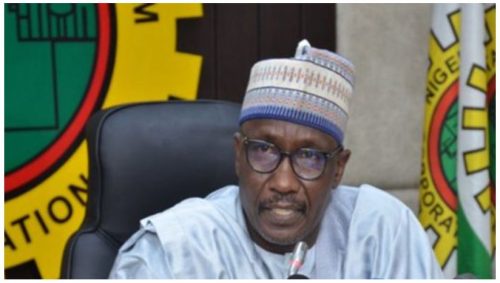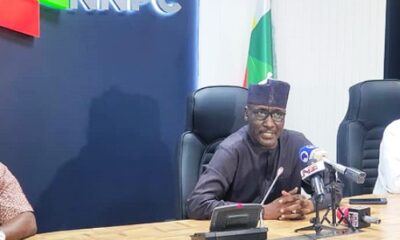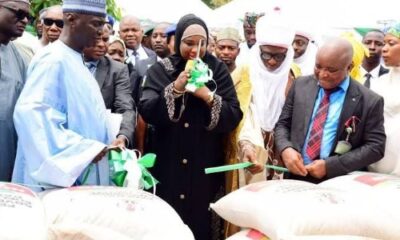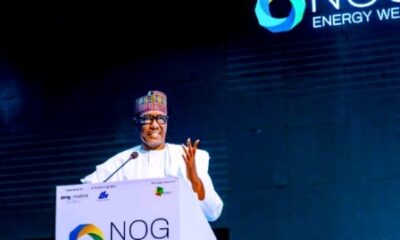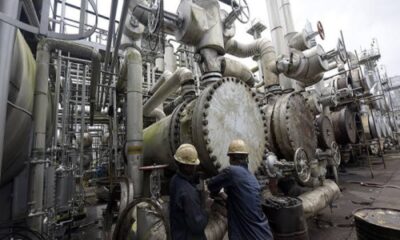The Federal Government has set up a technical panel to oversee the issue and guarantee that it returns to normalcy amid the uncertainties about the way forward and the problem surrounding the importation of tainted Premium Motor Spirit, also known as petrol, into Nigeria.
This happened as retailers claimed they had yet to get any instructions from the federal government on how to return contaminated fuel to the government for cleaning.
The oil dealers’ announcement came roughly a week after the government announced that it had recalled hundreds of millions of gallons of filthy fuel imported from Europe.
The import of the contaminated fuel had almost grounded business activities across the country as long fuel queues litter major roads.
Speaking on how marketers were at crossroads over the crisis, the National Public Relations Officer, Independent Petroleum Marketers Association of Nigeria, Chief Ukadike Chinedu, stated, “Some marketers still have the contaminated products in their stations, and are not selling because of this. The products have not been returned yet due to the lack of clear-cut directives on how it should be returned.
“Also, you need documents to enable you to move the tankers from your filling stations back to the place where the product is to be returned because if the police get you without the necessary accompanying documents, they will say you are involved in bunkering.”
However, the federal government has drafted a team of technical experts from the Nigerian National Petroleum Corporation Limited, MOMAN, DAPPMAN, and the downstream regulator, among other stakeholders, to manage the crisis occasioned by the imported adulterated fuel.
When contacted, the Spokesperson for the NNPC, Garba-Deen Muhammad, confirmed that a technical committee had been set up to look into the matter, and how the contaminated products would be managed.
He said, “The first thing is to ensure that it is recalled and not in circulation. There are various ways of handling this kind of product; we will leave that to the technical committee that has been set up.
“This committee is drawn from MOMAN, DAPPMAN, downstream regulator, NNPC, from all stakeholders. They all have technical people and know the best way to handle this kind of product.”
On the issues of compensation for people whose vehicles were damaged by the adulterated petrol, an official of the Federal Ministry of Petroleum Resources stated that the minister would constitute an investigative team.
“There is going to be an investigative team, and this issue is going to be part of the terms of reference for the team,” the official, who pleaded not to be named due to lack of authorisation, said.
The source added, “So it is only when the team is set up that you can be talking about compensation. It is the investigation that will determine the level of compensation.
“It is going to be part of the terms of reference. But it has not been set up. So it is after that you can talk about compensation and others. Very soon the team should be constituted and the minister is working on it.
“He’s in dialogue with the President and stakeholders to know the next step.”
The presence of contaminated petrol in Nigeria was officially confirmed on Tuesday by the Nigerian Midstream and Downstream Petroleum Regulatory Authority.
The NMDPRS had announced that a certain quantity of PMS with methanol quantities above Nigeria’s specification was discovered in the supply chain.
It said the contaminated product had been isolated, a development that led to a shortage in supply and triggered widespread scarcity of PMS nationwide.
“To ensure vehicular and equipment safety, the limited quantity of the impacted product has been isolated and withdrawn from the market, including the loaded trucks in transit,” the NMDPRA had said in a statement.
It also noted that the “source supplier has been identified and further commercial and appropriate actions shall be taken by the authority and the NNPC Ltd.”.
Nigeria does not refine crude oil due to the dormancy of its refineries, hence the NNPC imports the commodity from international refiners. This implies that the source supplier is an overseas firm.
The NMDPRA further stated that the NNPC had intensified efforts at increasing the supply of petrol into the market in order to bridge any unforeseen supply gap.
The National President, Independent Petroleum Marketers Association of Nigeria, Debo Ahmed, had told our correspondent that over 100 million litres of petrol were contaminated.
Asked whether the volume of the contaminated products was much, Ahmed had replied, “Well, I don’t know the exact volume, but what I know is that we lifted from various depots in Lagos. But we don’t know the quantity; they say it is about 100 million litres or so.”
The imports of adulterated petrol had also been condemned by the President, Major-General Muhammadu Buhari (retd.), and members of the National Assembly, as the government officials had called for a thorough probe into the matter.
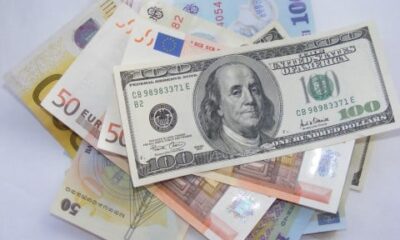
 BIG STORY5 days ago
BIG STORY5 days ago
 BIG STORY1 day ago
BIG STORY1 day ago
 BIG STORY5 days ago
BIG STORY5 days ago
 BIG STORY14 hours ago
BIG STORY14 hours ago
 BIG STORY5 days ago
BIG STORY5 days ago
 BIG STORY4 days ago
BIG STORY4 days ago
 BIG STORY4 days ago
BIG STORY4 days ago
 BIG STORY2 days ago
BIG STORY2 days ago




